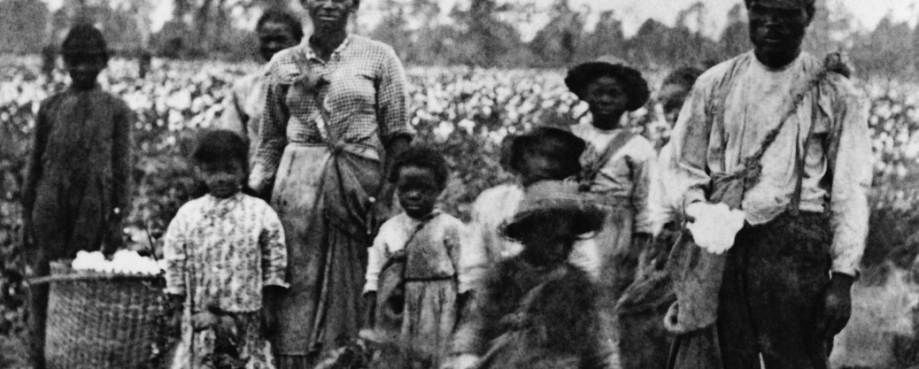
As an ETI contribution to Anti-Slavery Day (18 October), Stirling Smith travels back in time and asks, “what if there had been an ETI in the 1850s?”
Kevin Hyland, the Independent Anti-Slavery Commissioner, wrote last year that the Modern Slavery Act “has forced the business community to discuss the topic of slavery openly to an extent that has not occurred since the days of the 19th century abolitionists”.
So, I thought it would be interesting to travel back in the ETI time machine to that era –say the 1850s, in the United States. That’s a very appropriate place to land, as slavery was still flourishing, but would be eliminated in less than two decades.
In 1860 the United States carried out the last national census before the Civil War. It showed that there were 3,953,761 slaves in the country, amounting to 12.6% of the total population.
Quite precise numbers, eh?
How to end slavery?
Ten years later, at the next census, there were no slaves, as slavery had been abolished by the 13th amendment.
I’m sorry to say that the ‘business’ community did not bring about that rather massive change.
Rather, it was a VERY nasty war.
As Brits, we forget that roughly the same number of Americans were killed in the US Civil War as died in both world wars, the Korean War and Vietnam War put together - more than 600,000.
Business was booming
British business did not pull its weight in ending slavery because in the 1850s, slavery was growing.
And slavery was good business.
The original meaning of the phrase “sold down the river” referred to the sale of slaves to the deep South, where the cotton plantation trade was booming.
Since the abolition of the slave trade, certain states had specialised in breeding slaves for this particular trade.
And why was the slave trade booming?
Because British business was buying the cotton.
In the mid-19th century, the cotton industry, based in Lancashire, accounted for maybe one million jobs, and 40% of British exports.
Slave cotton was central to the supply chains.
Due diligence 1850s style
So, if the ETI had been around in the 1850s, or if there had been a Modern Slavery Act, what would have been happening?
Just picture the scene.
The Guardian (the Manchester Guardian it was in those days) would carry an article about the shocking conditions in the cotton plantations.
The British and Foreign Anti-Slavery Society – which is now ETI member, Anti-Slavery International – would be campaigning for British companies to stop using cotton grown by slaves. [Disclosure: I used to be a trustee for Anti-Slavery International, though not in the 1850s – I’m not that old].
The Lancashire companies would reply, “well, we order our cotton through agents, so we don’t really know whether or not it comes from plantations using slaves”.
After a lot of nudging, taking several years, links between particular plantations and Lancashire companies would be established. Companies might even produce lists of their suppliers.
And they would start to send auditors to the plantations.
You can just imagine the corrective action plans: Lighter chains. Canes instead of bull whips. More use of PPE by the slaves.
It would be reported that the plantation owners spoken to were personally against slavery, and were looking forward to a future where it would not be necessary.
Of course, if the British companies buying cotton would like to pay more, then they would be able to improve the conditions for slaves, and maybe even free some of them as they got older.
In defence of slavery
In fact, there were plenty of business people who supported the southern US states, when they seceded and set up the Confederacy.
A big motive was the desire to import all that cotton, and there were people who wanted Britain to fight the Union, as the north was known, which imposed a blockade on cotton exports.
British shipbuilding companies even built warships for the Confederate Navy. Doubtless they would have had fine CSR policies if they had been around today.
Lessons for today
Many professional historians don’t like what is called counterfactual history - questions like, “what if Napoleon had won the battle of Waterloo?”.
So, they will probably frown at my question, “what if there had been an ETI in the 1850s?”.
But since the ETI was set up 20 years ago, we have heard almost exactly the same excuses that I have put into the mouths of British business in the 1850s.
Thankfully, there are some real differences.
Firstly, the vile repulsive racism which existed in the 19th century it is no longer acceptable.
Secondly, slavery is illegal. We will never again have a census recording such a precise number of slaves.
But what is not different is the failure of due diligence.
Back in the 1850s, nobody could say they did not know about conditions of slaves in the cotton plantations.
There were public meetings, speeches by escaped slaves, and the best-selling book of the 19th century, after the Bible, Uncle Tom’s Cabin.
Forget what you think you know about that book, it is a passionate attack on slavery.
Slavery is hidden in plain sight
Today, we know where to look for slavery. In the granite quarries of South India, prisons of China, unofficial gold mines in Ghana and the fishing boats of Thailand.
It’s all on record. But consistently, companies seem to be taken by surprise by the stories when they appear in the press.
We do not need a civil war with 600,000 dead to eliminate slavery. To be fair, business today is doing a lot - ETI members more than most.
But far too many UK businesses need to look at those cotton companies of the 1850s and ask: would we have been any better?
Follow the links to download our free business guides on addressing modern slavery and child labour.
